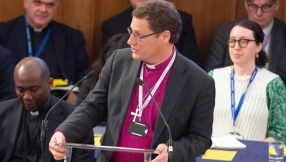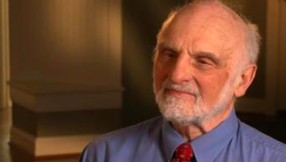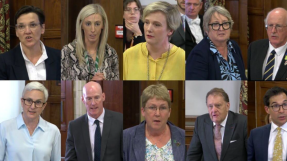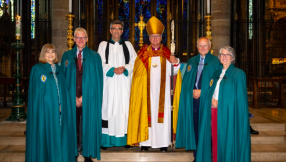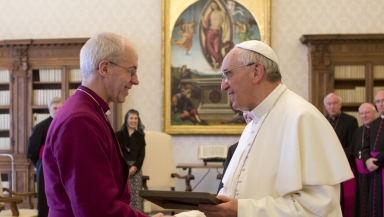
The Archbishop of Canterbury and Pope Francis have today met in Rome to recommit to combating modern slavery.
Statistics suggest that up to 27 million people are living in conditions of slavery - facing sexual exploitation or forced labour – across the globe. An estimated two million fall victim to sexual trafficking each year, and a further 20,000 are forced to give up an organ.
Although it is often assumed that such exploitation is limited to developing nations, recent figures indicate that there could be as many as 10,000 slaves living in the UK alone.
The Archbishop and Pope Francis have each given their support to the Global Freedom Network - a "groundbreaking ecumenical initiative to combat modern slavery and human trafficking" - as announced during their meeting last year. An agreement was then signed on 17 March 2014.
Today, as the pair met for the second time in eighteen months, Archbishop Welby presented his Catholic counterpart with a cutting from a fig tree that grows at Lambeth Palace, which was taken from a tree planted in 1556 by the last Roman Catholic Archbishop of Canterbury, Reginald Pole.
A press release issued by Lambace Palace says it is fitting that "the one tree will bear fruit in Lambeth and Rome as a visible sign of our own and our churches relationship growing and bearing fruit from the same source".
The Archbishop thanked Pope Francis for his hospitality, noting: "I marvel at the way God guides frail human vessels to be bearers of the message of salvation, leaving us a legacy across hundreds of years, to which we in our time are called to be faithful.
"I am grateful for the progress that has been made through the generous support of many, to draw to the attention of the world to the evils of Modern Slavery and Human trafficking," he continued.
"The Global Freedom Network can achieve much practically to dismantle what you have so often rightly said is a grave crime against humanity. It is a crime that we all need to overcome as a matter of urgency, as a matter of human dignity, freedom and wholeness of life.
"May God give us the resolve and cooperation we need together... As we remember the precious spiritual heritage that is common to us both...Remembering always the desire of Our Lord that "all may be one", we remain deeply committed to this work," he finished.
Pope Francis responded by quoting a Psalm: "Behold, how good and how pleasant it is for brothers to dwell together in unity!" (Ps 133:1).
"Beneath His merciful gaze, we cannot claim that our division is anything less than a scandal and an obstacle to our proclaiming the Gospel of salvation to the world," the Pontiff continued.
"Our vision is often blurred by the cumulative burden of our divisions and our will is not always free of that human ambition which can accompany even our desire to preach the Gospel as the Lord commanded (cf. Mt 28:19).
"The goal of full unity may seem distant indeed, it remains the aim which should direct our every step along the way... Our progress towards full communion will not be the fruit of human actions alone, but a free gift of God," he added.
Turning to the issue of modern slavery, the Pope recalled his first meeting with the Archbishop. "Your Grace and I discussed our shared concerns and our pain before a number of grave evils afflicting our human family. In particular, we shared our horror in the face of the scourge of human trafficking and forms of modern-day slavery," he said.
"I thank you for the leadership you have shown in opposing these intolerable crimes against human dignity.
"Let us persevere in our commitment to combat new forms of enslavement, in the hope that we can help provide relief to victims and oppose this deplorable trade. I thank God that, as disciples sent to heal a wounded world, we stand together, with perseverance and determination, in opposing this grave evil."










